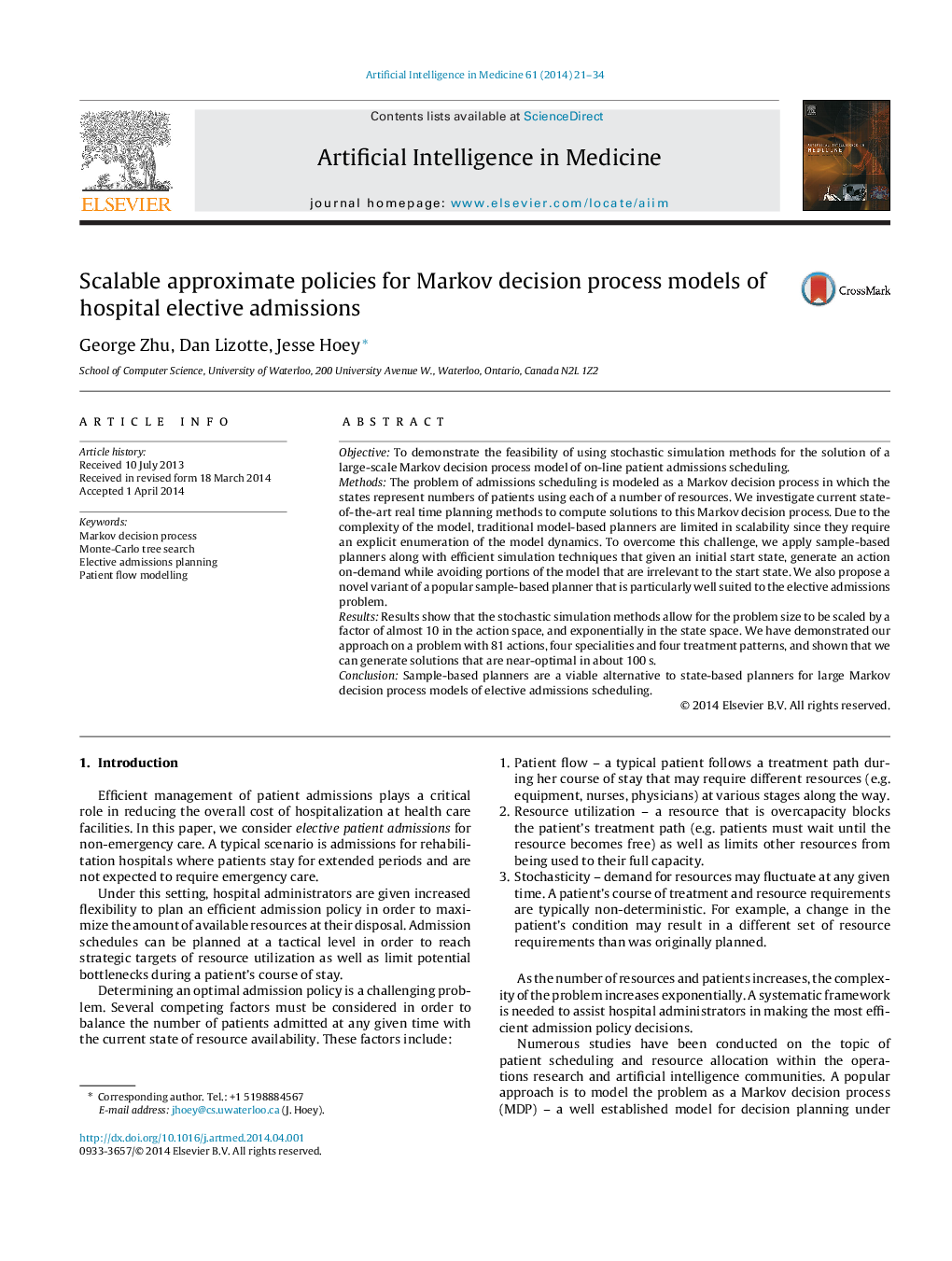| Article ID | Journal | Published Year | Pages | File Type |
|---|---|---|---|---|
| 377635 | Artificial Intelligence in Medicine | 2014 | 14 Pages |
ObjectiveTo demonstrate the feasibility of using stochastic simulation methods for the solution of a large-scale Markov decision process model of on-line patient admissions scheduling.MethodsThe problem of admissions scheduling is modeled as a Markov decision process in which the states represent numbers of patients using each of a number of resources. We investigate current state-of-the-art real time planning methods to compute solutions to this Markov decision process. Due to the complexity of the model, traditional model-based planners are limited in scalability since they require an explicit enumeration of the model dynamics. To overcome this challenge, we apply sample-based planners along with efficient simulation techniques that given an initial start state, generate an action on-demand while avoiding portions of the model that are irrelevant to the start state. We also propose a novel variant of a popular sample-based planner that is particularly well suited to the elective admissions problem.ResultsResults show that the stochastic simulation methods allow for the problem size to be scaled by a factor of almost 10 in the action space, and exponentially in the state space. We have demonstrated our approach on a problem with 81 actions, four specialities and four treatment patterns, and shown that we can generate solutions that are near-optimal in about 100 s.ConclusionSample-based planners are a viable alternative to state-based planners for large Markov decision process models of elective admissions scheduling.
